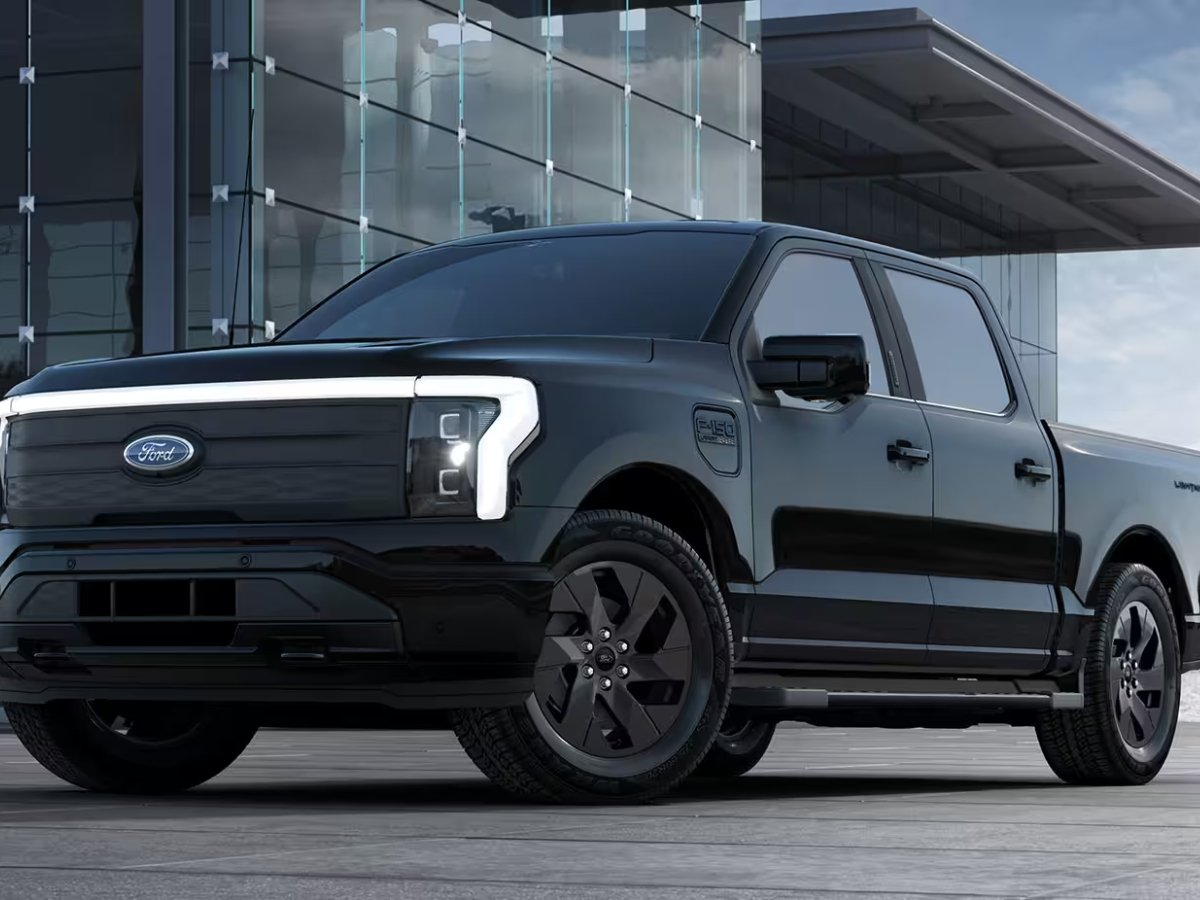Ford Motor Co. is reducing the production of its F-150 Lightning electric pickup truck. This decision is a response to the slower-than-expected growth in electric vehicle (EV) sales. Despite the overall growth in the EV market, the pace is not meeting the industry’s ambitious expectations. Ford’s adjustment in production levels aligns with the current market demand and its strategic plans.
The Ford F-150 Lightning is an all-electric version of Ford’s best-selling F-150 truck. It combines traditional truck utility with the benefits of electric power, offering impressive acceleration and zero emissions. The Lightning features a high-tech interior with advanced connectivity and driver assistance systems. Its towing and payload capacities cater to both work and recreational needs.
NEWS: Ford has introduced the F-150 Lightning Switchgear, an all-electric pickup built for off-road performance.
Two configurations were built, to suit either street or off-road performance. SwitchGear is based on an F-150 Lightning SuperCrew, and for both configurations, the… pic.twitter.com/QypIENLXS0
— Sawyer Merritt (@SawyerMerritt) January 17, 2024
This production cut at Ford’s Michigan Rouge Electric Vehicle Center will transition from multiple shifts to just one starting April 1. This change in production strategy is reflective of a broader industry trend where automakers, including Ford, are increasingly focusing on gas-electric hybrid vehicles, which are currently more popular with consumers. Factors like high prices and inadequate infrastructure, such as a lack of widespread charging stations, are contributing to consumer hesitation towards fully electric vehicles.
Read: Hertz’s Tesla Model 3 Revolution: A New Era in Car Sales and Rentals
Ford had previously planned a higher production rate for the F-150 Lightning but has revised these figures downward. This scaling back affects approximately 1,400 workers at the Michigan plant, with some being transferred to other roles within the company or taking advantage of a special retirement program. The impact extends beyond just the main production facility, also affecting employees at component plants related to the F-150 Lightning production.
Despite these adjustments, Ford continues to see a future in electric vehicles, albeit with more conservative growth expectations for 2024. The company is adapting to these new market realities, balancing its commitment to electric vehicles with the current consumer trends and industry dynamics.







